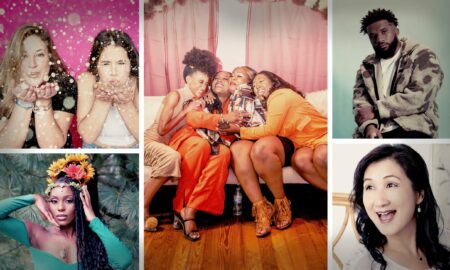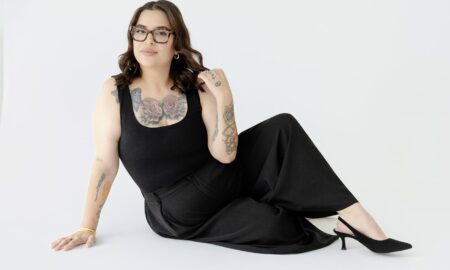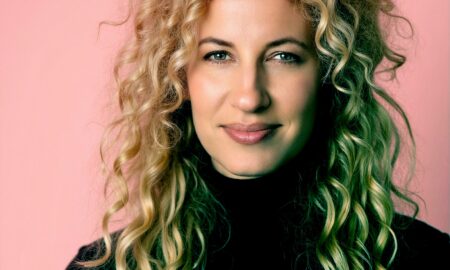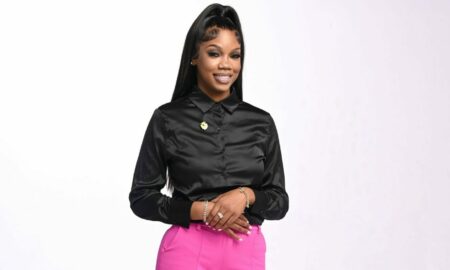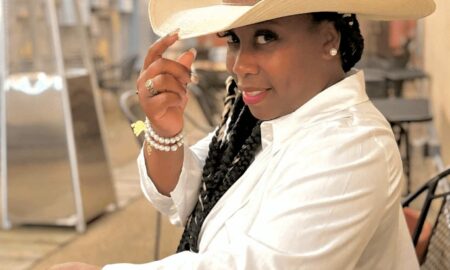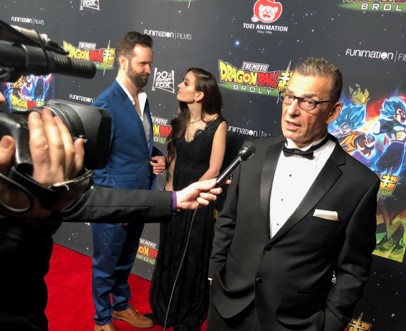

Today we’d like to introduce you to Bruce Carey.
Bruce, let’s start with your story. We’d love to hear how you got started and how the journey has been so far.
I guess it all started when I was three and my mom dropped me on my head. That’s when I started hearing voices. With hyperfocus, at the forefront of all other senses. I was awash in a sea of sound. I began to hear colors and see vibration. Electric blue sine waves, burnt orange square waves and emerald green sawtooth waves.
In the real world, I heard the crisp, metallic chirp of the bright red cardinal and his family in the tree outside my second story bedroom window I shared with my brother, Jon. My nutty great aunt who breathed through her mouth and talked through her nose. The lawn mowers in the front yard sounded enormous as they chewed and ground up entire forests of thick, green living carpet. (Yeah, I know. Even my real world was pretty cartoony.)
In the animated world of TV cartoons, my hyperactive reality, character voices, and sound effects spilled into real life. I would run up and down our big, winding staircase doing tire screeches and boing boings. Wiley Coyote getting dynamited and falling into the Grand Canyon. Marvin the Martian’s Immodium Q-36 modulator ray, barely missing our tranquil, blue marble floating in space. And, the Tasmanian Devil spinning like a Force 5 hurricane on steroids. I was prince of my sonic realm. Warner Brothers and Hanna Barbera were my King and Queen.
I drove my parents crazy. I remember being taken to a child psychologist at a very young age and hearing her say to my mother, “He’s not crazy. He’s probably just going to be an actor.” Prophetic.
The other boys played baseball. I played animated characters and celebrities. Snaking my way through mom and dad’s cocktail parties in a red vest and bow tie, doing celebrity impressions for their friends, sipping a Shirley Temple in a martini glass. A knee-high, surreal, little stand-up impressionist dressed as an organ grinder’s monkey. I didn’t feel exploited. I loved it.
I’ve been acting a long time. I started off as a kid doing theater, impressions, then radio and TV, back to theater, improvisation, character analysis, you name it. I did some TV roles and movies, but voice over eventually became my main focus. I seriously studied my craft, took voice over lessons, went to many voice-over seminars, read the books, got the t-shirt, saw the movie and bought the action figure. But, I didn’t find what I was searching for a method. So, 15 years ago, I designed one.
It didn’t take me long to realize that that most teachers of voiceover think it’s all about the voice. It’s really not, you know. Now that may sound counter-intuitive to you. Often actors in the recording booth will say, “What do you mean, voice over is not about the voice?! It’s VOICE over, Bruce! Of course it’s about the voice.” Not really. It’s about moving through a scene. Take the game of Chess. If you don’t understand what’s really going on, you think it’s a game of moving pieces on a board. But what’s really going on is strategy. Chess is about strategy, which is internal, hidden. If you don’t understand that, then you think it’s a game of simply moving pieces.
It’s the same with voice acting. The Voices Carey Method focuses on the actor inside, not the voice outside. It’s not about manipulating your voice. It’s not about words on a page. It’s about the internal world you are creating. It’s about imagination. Being in a scene and filtering someone else’s words through your own experience and emotions and sending it out the old pie hole with your particular feelings and point of view. This is the real work. Oral Interpretation. This is what we study and teach. Filtering the words on the page through your thoughts and emotions and coming up with something that grabs the listener. Something compelling.
Now that Anime and video games are so popular, we’ve been discovered! Our school has blossomed bigtime in the last year. We have five instructors, four weekly group classes, plus private lessons in-studio and via Skype. We also produce national quality voice over demos for commercials, narrations, Anime, and video games. Our online curriculum is coming later in the year along my book. Which is intended to be the definitive instruction manual on becoming a voice actor.
Great, so let’s dig a little deeper into the story – has it been an easy path overall and if not, what were the challenges you’ve had to overcome?
I believe success is built on failure. You have to give yourself permission to fall and skin your knees. No one can do it for you.
In my mid 20’s, my agent called to tell me one of the big, international rental car firms had been searching for a new voice and they had chosen me. The last guy had the job for five years, so it was likely to be a long term thing. It was a union gig with a good session fee, big residuals and every dollar would contribute to my SAG-AFTRA insurance and pension fund. It could go on for years. We were ecstatic.
I didn’t even have to audition. The ad agency booked me off my new demo reel. I was very proud of that demo. I was a DJ at ABC Radio Networks and I had invested many hours, hundreds of takes and every production trick I knew, getting it to sound perfect. It was very slick and well-produced. I thought I was such a production stud.
I got to the recording session and immediately the director started asking me to do more than use my voice. To really act and feel, on cue. Well, at that time, I was a completely external actor. I was very precisely schooled in manipulating my voice. But, he didn’t direct my voice. He directed the actor inside. He said, “OK Bruce, on the first line, I want you to pull my heartstrings and on the third line I want a touch of sarcasm and in the third graph, show me envy.” I wasn’t expecting that. And I surely wasn’t prepared for it. I tried and tried. But it wasn’t real. I was Smokey Robinson living :The Tracks of My Tears.”
Outside, I’m masquerading. Inside, my hopes are fading.
I was in way over my head and I knew it. I could not give the director what he wanted, I simply didn’t comprehend the importance of acting from the heart first and the voice second. I couldn’t negotiate the emotional turns. I felt like a standup comedian dying alone onstage. Then, on about Take 17, he said, “Hey Bruce, where’s the guy on the demo?” My heart sank like Leo Dicaprio on the deck of the Titanic. I swear I could hear “Nearer My God To Thee” playing as my hope drowned. What happened next? The director fired me and hired someone else. Someone who could actually act with his voice, not just manipulate it.
And that’s the story of how my lack of acting skill lost me one of my early big commercial VO jobs. And how my failure drove me to become a better actor. I went back and studied dramatic acting, film acting and Improv. Cross training. It’s hugely important in any discipline.
This improved my abilities so much that only a couple of years later, I had developed a serious commercial career. I became the voice of AOL and Greyhound. I picked up clients like Frito-Lay, Tabasco, American Heart Association and U.S. Navy International and Wal-Mart. That led me to TV and film work I would have otherwise never known how to handle.
Alright – so let’s talk business. Tell us about Voices Carey – what should we know?
We’re a voice acting school. We build well-rounded voice over artists. We coach privately via Skype and in group classes. We have great people and great instructors. What sets us apart is our Method. It’s the product of all the techniques, tips and experience I’ve gathered over several decades of doing this work. That’s the value of good teachers. They save you time and take you on a more direct path to your goal!
Is there a characteristic or quality that you feel is essential to success?
Well in any performing art, you have to start with talent. I was lucky; I was born with a little. And I got good training. I also have a lot of experience now and that helps a lot. But the most important quality is perseverance. When I was in 8th grade and didn’t get a part I wanted in a musical, my dad said, “Unrewarded talent is practically an axiom. Stay after it. Don’t give up. It will come to you.”
Pricing:
- Group Classes: 12 hours of per month, $169.00
- Private Lessons $125-$150/hr
- Premium Voice Over Demos $1850
Contact Info:
- Address: Voices Carey Studio
La Madeleine Building
3906 Lemmon Avenue
Suite 201 Dallas TX 75219 - Website: www.dallasvoiceover.com
- Phone: 214 599-9991
- Email: bruce@voicescarey.com
- Instagram: voices_carey
- Facebook: Voices Carey
- Twitter: @voices_carey
- Other: www.voicescarey.com







Getting in touch: VoyageDallas is built on recommendations from the community; it’s how we uncover hidden gems, so if you know someone who deserves recognition please let us know here.










